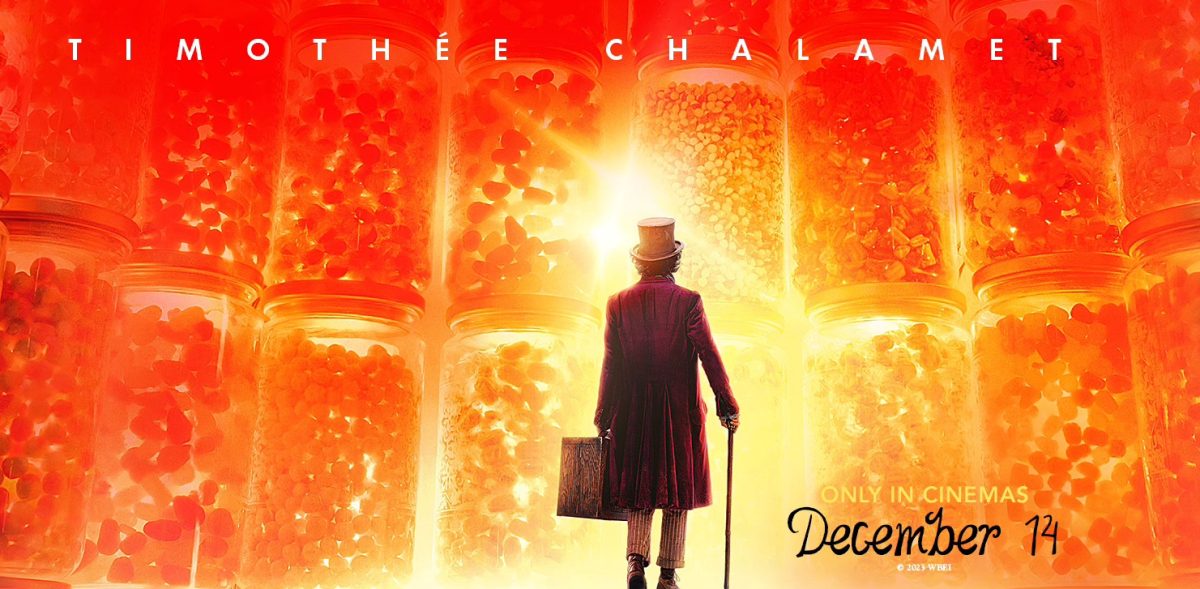
Wonka is one of the best family movies of the year and a more than worthy prequel to the beloved Wilder original. Photo: Warner Bros.
The original Willy Wonka and the Chocolate Factory is one of the greatest family flicks of all time.
Led by an iconic performance from the one and only Gene Wilder, the mix of childlike wonder and innocent whimsy created an enduring film that has stood the test of time.
Now 52 years and a Johnny Depp reboot later, the famous chocolatier has returned to the big screen for Wonka, as Warner Bros looks to recapture the heart that made the original so great.
The new film follows ‘Willy’ as he arrives in Europe, hoping to open his very own chocolate shop.
Unfortunately, his plans are immediately stalled as he is conned out of his last dollar and runs into the maniacal chocolate cartel, a group of three rival chocolate makers who run the local police.
The unfortunate situation Wonka finds himself in means he needs to repay a debt before he can accomplish his dreams, leading to some wild shenanigans.
This time round, Willy Wonka is played by Timothee Chalamet, a choice I was initially quite pessimistic about. It did take me a few minutes to warm up to Chalamet’s performance, but by the time his first musical number was completed, I was sold.
Chalamet never reaches the quirky heights of Wilder, but there are no Michael Jackson impersonations, so that’s a win.
What does elevate his performance though, is his history on stage. Unlike the other two films, Wonka is an out-and-out musical, something I didn’t feel was properly advertised.
Chalamet’s history in stage plays means he never looks lost while performing. Everything Wonka does has meaning, and the confidence of Chalamet in the role makes it all the more believable, even if what you see on screen is fanciful.
The rest of the cast is made up of a who’s who of B-grade British character actors. This is another smart decision by the casting department, as no actor outperforms the title character. The supporting actors still do a fantastic job as each provides fun, over-the-top caricatures that range from annoyingly pathetic to endearingly funny.
There are a few nods to the original film, too. The opening credits are met by the instantly recognisable intro of Pure Imagination, a song made famous by the Wilder Film.
A few character designs and iconic quotes also return, some less forced than others. I never felt like these references were nostalgia bait, for the most part, each reference to the original was handled with care honouring the classic story while still doing its best to be its own thing.
Paul King also directs the new film. For those unfamiliar with King’s work, he is responsible for two of the greatest family movies of the last decade. Paddington and Paddington 2. Like his two previous films, Wonka is filled with fantastic world-building to a stylised backdrop reminiscent of a stage play.
This is traditional for a Paul King film and really works for a movie like Wonka. Unfortunately, what separates this film from the likes of the Paddington films is that for me, Wonka doesn’t quite stick the landing.
Unlike a couple of other movies I’ve seen this year, Wonka could have benefited from another 10 minutes of screen time. There is a storyline revolving around the past of a side character named Noodle. Her story throughout is never quite as interesting as Wonka’s, yet the story still continues to circle back to who she is and where she is from.
I feel that 10 more minutes to properly flesh her story out or dropping her narrative completely would have served in favour of the film’s overall storytelling.
All in all, Wonka is the second-best film featuring the famous chocolatier. Its world-building, silly gags, fun musical numbers and energetic performances elevate the movie to be one of the most fun films of the year and a more than worthy successor to the Wilder original. Personally, I believe that if you were looking to see a fun family film this Christmas, Wonka would be the way to go.
Original Article published by Jarryd Rowley on Riotact.







